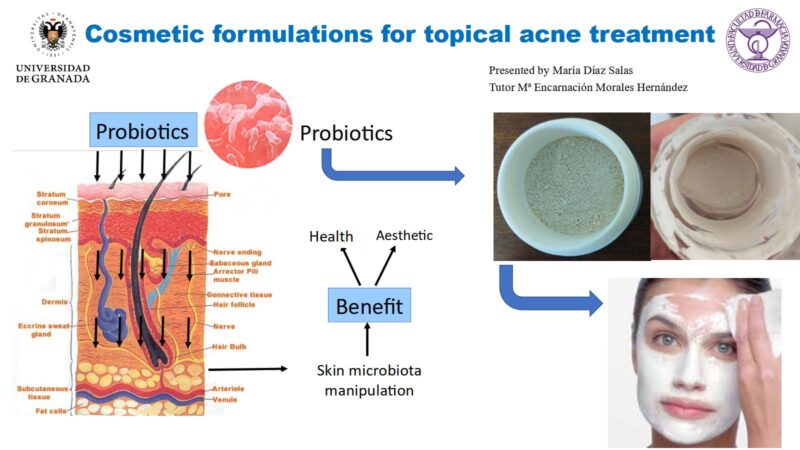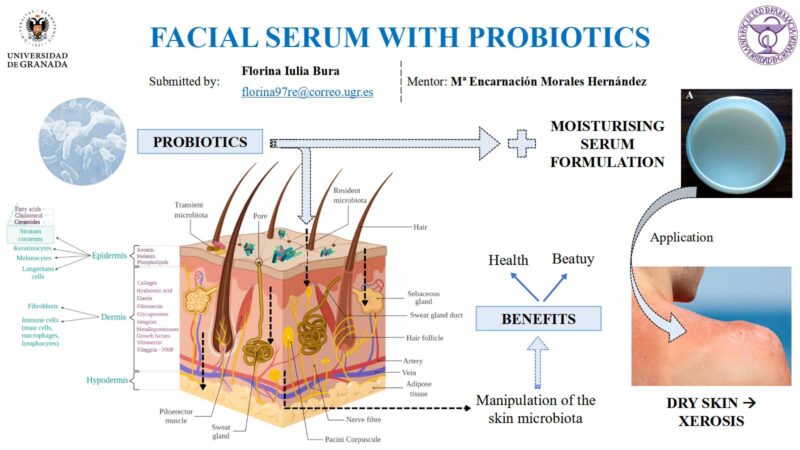Ac
Acne is a worldwide disease, affecting mainly the 12 – 24 years-old age group, in which it is the most common disease. Several options are available as treatment for acne, including topical or oral antibiotics, topical retinoids, hormone-based therapies, isotretinoin, etc. However, due to the side effects they can cause and the worldwide increase in bacterial resistance to antibiotics, new alternatives are being sought to balance the skin microbiota, the set of microorganisms that reside on our skin. Cutibacterium acnes is a bacterium found normally in healthy skin and more abundantly in people with acne.
New alternatives include the use of topical probiotics (such as Lactobacillus fermentum), which are live microorganisms that directly improve and modify the skin’s microbiota and immune response.
These probiotics directly inhibit C. acnes with proteins that act against microorganisms and also have properties that modify the skin’s immune system. Hence, this Master’s thesis focuses on the development of new cosmetics with natural ingredients enriched with probiotics with the aim of balancing the skin’s microbiota to combat diseases such as acne and avoid the unwanted side effects of the anti-acne treatments currently in use.
Keywords: skin; acne; probiotics; Lactobacillus fermentum; mask
Directed by: Mª Encarnación Morales Hernández
